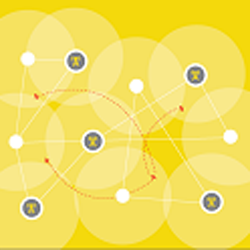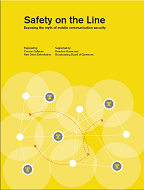Mobile Audiences Growing Fast, Security Concerns Keeping Pace

 As the adoption of mobile technology grows at astounding rates around the world, mobile device users in countries with repressive regimes face mounting challenges to their privacy and security, according to a report released today by the Broadcasting Board of Governors (BBG) and Freedom House.
As the adoption of mobile technology grows at astounding rates around the world, mobile device users in countries with repressive regimes face mounting challenges to their privacy and security, according to a report released today by the Broadcasting Board of Governors (BBG) and Freedom House.
“Safety on the Line: Exposing the Myth of Mobile Communications Security” analyzes market data and mobile use habits, and tests popular mobile technologies prevalent in each of 12 countries: Azerbaijan, Belarus, China, Egypt, Iran, Libya, Oman, Saudi Arabia, Syria, Tunisia, Uzbekistan and Vietnam.
The report calls for greater cooperation among the mobile phone and operating system industries, funders of anti-censorship technologies, and mobile security app developers. It also recognizes a need to enhance awareness of the security risks among users of mobile devices in repressive and undemocratic regimes.
“The BBG’s audiences are increasingly turning to mobile platforms to consume news and information, and to engage with their peers locally and globally,” said Andre Mendes, director of Technology, Services and Innovation at the BBG. “As the BBG deploys new tools for circumventing government censorship and enhancing user security, it is important for us to better understand the risks across the entire ‘technology stack,’ from handset, to operating system, to app, to mobile network.”
Read the full report here.
Researchers found that the very features that make a phone “smart,” (Internet access, camera, GPS, etc.) can in some cases be activated remotely, making the phone an insidious tool for invading privacy; virtual private networks (VPNs) provide inadequate security on mobile platforms, with VPN service failing as mobile devices switch from one network to another; mobile platforms popular in repressive regimes do not come with sufficient pre-installed security options, and overriding standard programming is both difficult and risky; and the impending worldwide switch to IPv6 Internet addressing protocol provides openings for anti-censorship programmers and government blockers alike.
The report was commissioned by the BBG’s Internet Anti-Censorship program, which sought information about mobile markets and user habits in priority countries to inform the development of secure, safe mobile delivery for audiences in highly censored environments. The BBG partnered with Freedom House, a leading NGO in media freedom and human rights issues, to oversee the study, which was conducted by researchers Cormac Callanan of Ireland and Hein Dries-Ziekenheiner of the Netherlands. Callanan and Dries-Ziekenheiner also served as research leads on the Freedom House-supported study, “Leaping over the Firewall” (2011), a technical review of Internet anti-censorship tools.
The Broadcasting Board of Governors is a leader in combating Internet censorship, as well as other technological threats to press freedom, including satellite jamming and signal interference.
Media inquiries: (202) 203-4400
